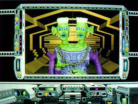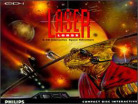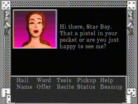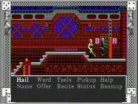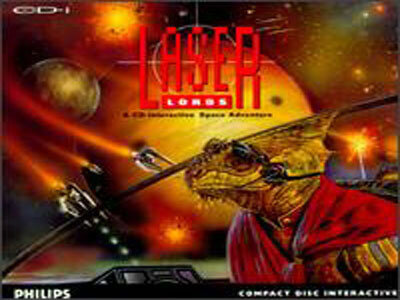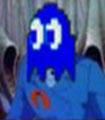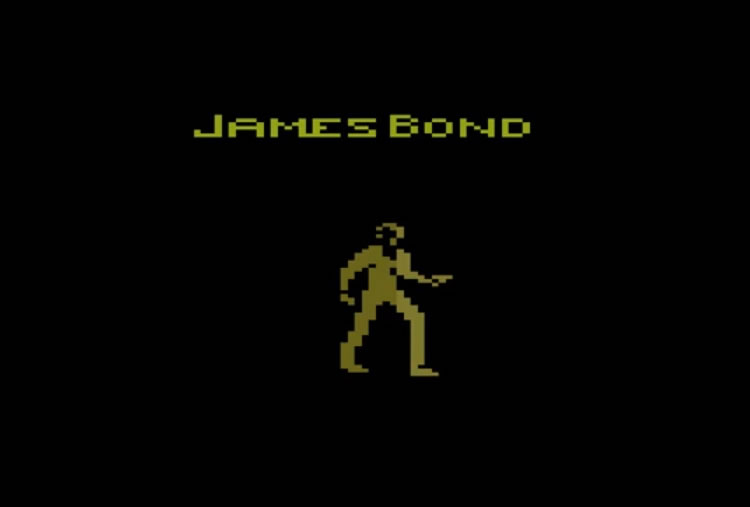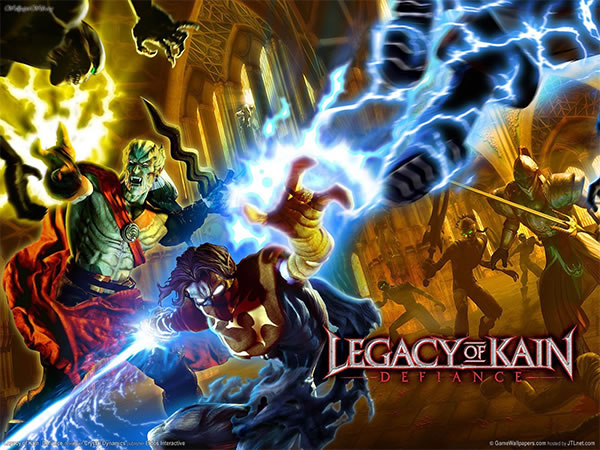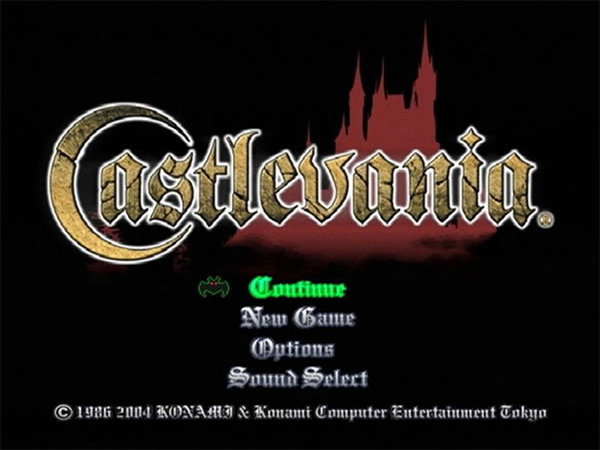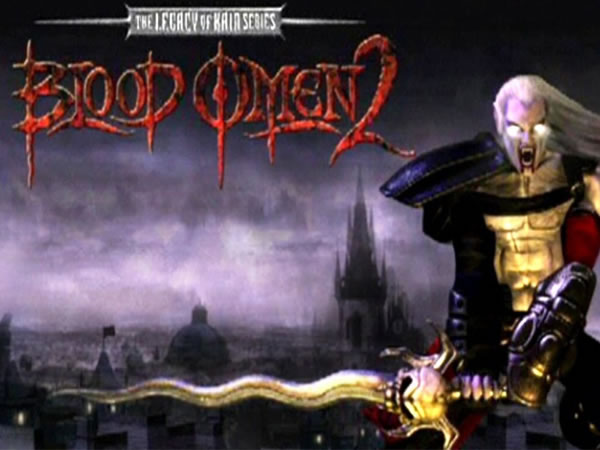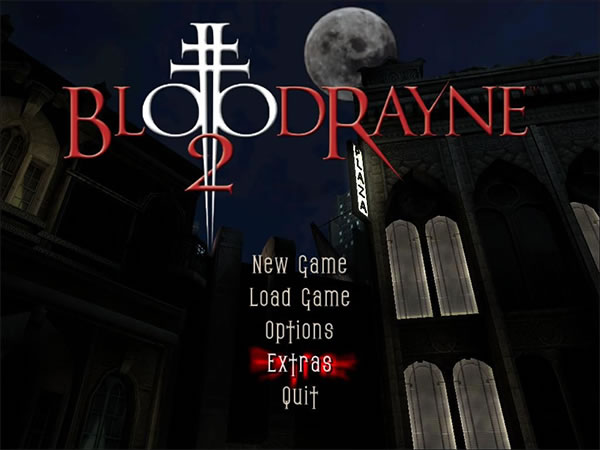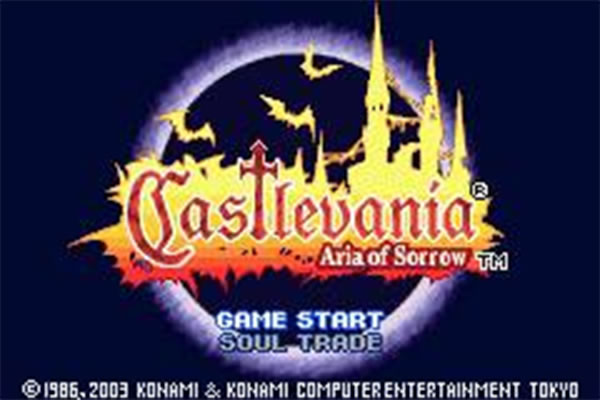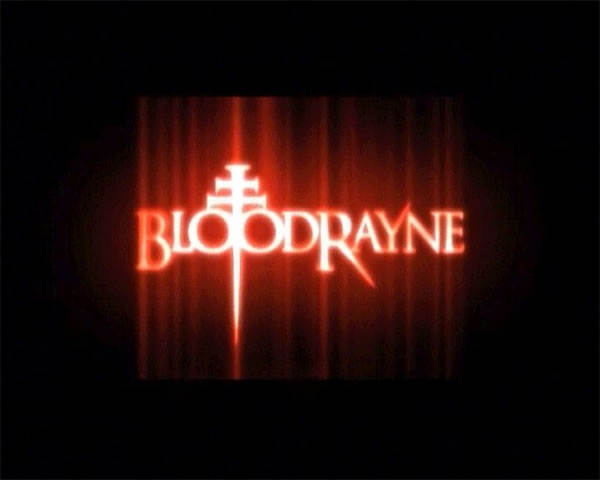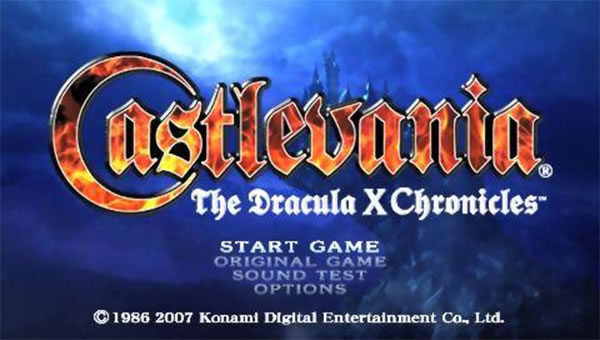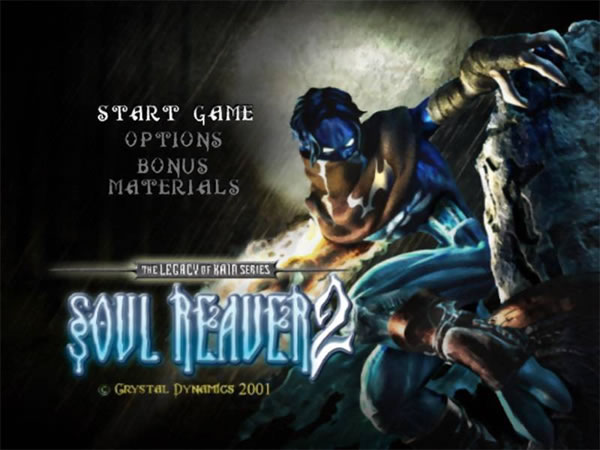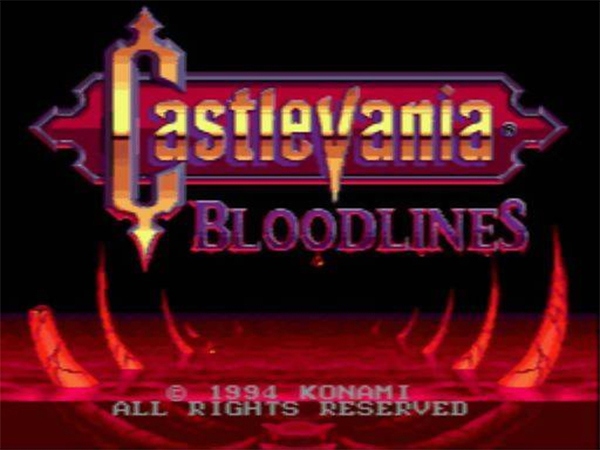- CLASSIC MAGAZINES
- REVIEW CREW
A show recapping what critics thought back
when classic games first came out! - NEXT GENERATION'S BEST & WORST
From the worst 1-star reviews to the best
5-stars can offer, this is Next Generation! - NINTENDO POWER (ARCHIVE)
Experience a variety of shows looking at the
often baffling history of Nintendo Power! - MAGAZINE RETROSPECTIVE
We're looking at the absolutely true history of
some of the most iconic game magazines ever! - SUPER PLAY'S TOP 600
The longest and most ambitious Super NES
countdown on the internet! - THEY SAID WHAT?
Debunking predictions and gossip found
in classic video game magazines! - NEXT GENERATION UNCOVERED
Cyril is back in this spin-off series, featuring the
cover critic review the art of Next Generation! - HARDCORE GAMER MAGAZING (PDF ISSUES)
Download all 36 issues of Hardcore Gamer
Magazine and relive the fun in PDF form!
- REVIEW CREW
- ELECTRONIC GAMING MONTHLY
- ELECTRONIC GAMING MONTHLY RANKS
From Mario to Sonic to Street Fighter, EGM
ranks classic game franchises and consoles! - ELECTRONIC GAMING MONTHLY BEST & WORST
Counting down EGM’s best and worst reviews
going year by year, from 1989 – 2009! - ELECTRONIC GAMING BEST & WORST AWARDS
11-part video series chronicling the ups and
downs of EGM’s Best & Worst Awards!
- ELECTRONIC GAMING MONTHLY RANKS
- GAME HISTORY
- GAME OVER: STORY BREAKDOWNS
Long-running series breaking down game
stories and analyzing their endings! - A BRIEF HISTORY OF GAMING w/ [NAME HERE]
Real history presented in a fun and pithy
format from a variety of game historians! - THE BLACK SHEEP
A series looking back at the black sheep
entries in popular game franchises! - INSTANT EXPERT
Everything you could possibly want to know
about a wide variety of gaming topics! - FREEZE FRAME
When something familiar happens in the games
industry, we're there to take a picture! - I'VE GOT YOUR NUMBER
Learn real video game history through a series
of number-themed episodes, starting at zero! - GREAT MOMENTS IN BAD ACTING
A joyous celebration of some of gaming's
absolute worst voice acting!
- GAME OVER: STORY BREAKDOWNS
- POPULAR SHOWS
- DG NEWS w/ LORNE RISELEY
Newsman Lorne Riseley hosts a regular
series looking at the hottest gaming news! - REVIEW REWIND
Cyril replays a game he reviewed 10+ years
ago to see if he got it right or wrong! - ON-RUNNING FEUDS
Defunct Games' longest-running show, with
editorials, observations and other fun oddities! - DEFUNCT GAMES QUIZ (ARCHIVE)
From online quizzes to game shows, we're
putting your video game knowledge to the test!- QUIZ: ONLINE PASS
Take a weekly quiz to see how well you know
the news and current gaming events! - QUIZ: KNOW THE GAME
One-on-one quiz show where contestants
find out if they actually know classic games! - QUIZ: THE LEADERBOARD
Can you guess the game based on the classic
review? Find out with The Leaderboard!
- QUIZ: ONLINE PASS
- DEFUNCT GAMES VS.
Cyril and the Defunct Games staff isn't afraid
to choose their favorite games and more! - CYRIL READS WORLDS OF POWER
Defunct Games recreates classic game
novelizations through the audio book format!
- DG NEWS w/ LORNE RISELEY
- COMEDY
- GAME EXPECTANCY
How long will your favorite hero live? We crunch
the numbers in this series about dying! - VIDEO GAME ADVICE
Famous game characters answer real personal
advice questions with a humorous slant! - FAKE GAMES: GUERILLA SCRAPBOOK
A long-running series about fake games and
the people who love them (covers included)! - WORST GAME EVER
A contest that attempts to create the worst
video game ever made, complete with covers! - LEVEL 1 STORIES
Literature based on the first stages of some
of your favorite classic video games! - THE COVER CRITIC
One of Defunct Games' earliest shows, Cover
Critic digs up some of the worst box art ever! - COMMERCIAL BREAK
Take a trip through some of the best and
worst video game advertisements of all time! - COMIC BOOK MODS
You've never seen comics like this before.
A curious mix of rewritten video game comics!
- GAME EXPECTANCY
- SERIES ARCHIVE
- NINTENDO SWITCH ONLINE ARCHIVE
A regularly-updated list of every Nintendo
Switch Online release, plus links to review! - PLAYSTATION PLUS CLASSIC ARCHIVE
A comprehensive list of every PlayStation
Plus classic release, including links! - RETRO-BIT PUBLISHING ARCHIVE
A regularly-updated list of every Retro-Bit
game released! - REVIEW MARATHONS w/ ADAM WALLACE
Join critic Adam Wallace as he takes us on a
classic review marathon with different themes!- DEFUNCT GAMES GOLF CLUB
Adam Wallace takes to the links to slice his way
through 72 classic golf game reviews! - 007 IN PIXELS
Adam Wallace takes on the world's greatest spy
as he reviews 15 weeks of James Bond games! - A SALUTE TO VAMPIRES
Adam Wallace is sinking his teeth into a series
covering Castlevania, BloodRayne and more! - CAPCOM'S CURSE
Adam Wallace is celebrating 13 days of Halloween
with a line-up of Capcom's scariest games! - THE FALL OF SUPERMAN
Adam Wallace is a man of steel for playing
some of the absolute worst Superman games! - THE 31 GAMES OF HALLOWEEN
Adam Wallace spends every day of October afraid
as he reviews some of the scariest games ever! - 12 WEEKS OF STAR TREK
Adam Wallace boldly goes where no critic has
gone before in this Star Trek marathon!
- DEFUNCT GAMES GOLF CLUB
- DAYS OF CHRISTMAS (ARCHIVE)
Annual holiday series with themed-episodes
that date all the way back to 2001!- 2015: 30 Ridiculous Retro Rumors
- 2014: 29 Magazines of Christmas
- 2013: 29 Questionable Power-Ups of Christmas
- 2012: 34 Theme Songs of Christmas
- 2011: 32 Game Endings of Christmas
- 2010: 31 Bonus Levels of Christmas
- 2009: 30 Genres of Christmas
- 2008: 29 Controls of Christmas
- 2007: 34 Cliches of Christmas
- 2006: 33 Consoles of Christmas
- 2005: 32 Articles of Christmas
- 2004: 31 Websites of Christmas
- 2003: 29 Issues of Christmas
- 2002: 28 Years of Christmas
- 2001: 33 Days of Christmas
- NINTENDO SWITCH ONLINE ARCHIVE
- REVIEW ARCHIVE
- FULL ARCHIVE
Laser Lords
Douglas Adams, sci-fi writer extraordinaire, is an important figure in the world of gaming. He was first reputable author to write his own video game, an interactive text adventure of his novel The Hitchhiker's Guide to the Universe. But his influence is more far-reaching in that he taught us that space operas do not have to take themselves so seriously - that the unknown reaches of space could serve the empty slates for comedy and satire. Years later, games like Space Quest and Earthbound, with their blend of humor and adventure, seem indebted to Adams, and so too is Laser Lords, a game that begins with an earthbound hitchhiker lifted from a desert road in a starship shaped like a 1950s Chevy.
At first, it's hard to determine whether Laser Lords is intentionally funny or if it's just laughable in itself. As your prototypical action hero jumps across the screen with his armed bent in the posture of prancing bunny, you will find yourself wondering if this is a serious adventure or a comedy. If you stay patient long enough, Laser Lords reveals itself as both. It is a cleverly scripted adventure with a complex plot and many moments of disturbing humor.
You play a human, the latest in a long succession of candidates who have failed to prevent the end of universe as we know it. The evil Sarpedon, a "primordial being" who has "manifested [himself] into the material plane" is trying to obtain a condensation crystal in order to squeeze the universe into a ball that he alone would possess. Your guide, an amphibious biped named Zendo, has put you in the role of reluctant hero and has given you nine lives to work with. (Losing a life, however, is not a big deal since you have three save slots to mark your progress.)
You have seven planets to explore, each rich in its own mythology and history, some of which resemble our own ancient societies. For example, on the planet of Argos, the locals are dressed in togas and the landscape is adorned with white marble columns. Obviously, this is ancient Greece, and if you look carefully at some of the character's names, you will find familiar figures of that bygone world. A woman named Emdea entreats you to behead her for her heinous crime of killing her own children to spite her ex-lover. As her tale unfolds, it is clear that "Emdea" is just an anagram of "Medea," the jilted wife of Jason from the famous Argonauts tale who did indeed commit filicide. The proper nouns given throughout the game are either historically or allegorically apt and sometimes cause for laughing out loud.
Like an RPG, the game thrives on the exchange of items. Give a character what he wants, and you will receive something useful in return. Where it diverges from the old barter formula, however, is that you can also collect words from people. When someone talks, some words are highlighted, and you can enter the "REMEMBER" command to put them in a word bank. Conversations require a lot of patience. If you are one of those gamers that like to skip past dialogue by repeatedly tapping a button, then you should stay away from this one. One overlooked word, and you're drifting aimlessly through space.
If you read this far, you may be saying to yourself, "This sounds more like a book than a game. That's not fun." Perhaps. But the dialogue is voiced by competent actors, a rare thing for games of this era. Not only is the acting good, but the tongue-in-cheek attitude of the programmers shines when you hear various impersonations of recognizable actors like Humphrey Bogart, Peter Lorre, Gregory Peck, John Wayne, Arnold Schwarzenegger, Jim Backus, and Jean Stapleton. You may find yourself progressing through the game just to hear who'll turn up next.
The game is also very disturbing. Had more people played Laser Lords back in 1992, it may have been cause for some mild controversy. On the back of the box, it reads "Age 12 and Up," but the game is replete with sexual innuendo, drug addiction, gambling, claymation animations of humans being dismembered and eaten. Either the package designers hadn't played the game or they have a very liberal attitude about what is acceptable for a twelve-year old. Its contents take an especially dark turn when you approach the pleasure planet of Fornax (a seeming portmanteau of "fortification" and "relax"). Here, you can play Russian roulette (dubbed "Fast Blast") in order to win a large sum of money. If this game is "12 and Up" then The Deerhunter should be rated PG. On this planet, you also meet an effete man named Proctus who when you ask his name, tells you "Please, no proctology jokes. My fellow Creegs think it's so witty to ask me to check their hemorrhoids." (Cringe!) His species, the Creegs, are comprised of twenty men for every female, and whenever you meet one, the homosexual humor continues. You even meet a pair of incestuous Siamese twins on route to their honeymoon and a Creegan robot with an effeminate voice. Imagine IG-88 from Star Wars with the speech inflection of Scott Thompson.
Now for the bad. The game is too big. The great point-and-click adventures of the time (games like Monkey Island, Indiana Jones, and Space Quest) were large, but they were also compact. In Monkey Island, for example, storefronts would sit adjacent to one another, allowing Guybrush Threepwood to run errands in a timely fashion. In Laser Lords, there are entire screens that do nothing but take up space, and with your character walking as slowly as he does, you may want to hold a book in one hand while you hold down the d-pad in the other. On one planet, it takes five screens to reach one key building with no enemies or items to distract you on your way. Seriously, if one were to do a speed run of this game, it will take at least five hours.
Philips CD-i games work best when they don't require any kind of hand-eye-coordination. Its poor frame-rate precludes that kind of game. Laser Lords gives one-handed gamers a reason to rejoice. This huge adventure works great with the remote controller, allowing you to lay back and vicariously wander seven expansive worlds. Trust me: you'll want to lay down; this one's going to take a while.
Some of the programmers behind Laser Lords are also responsible for the debacle known as Zelda: The Wand of Gamelon. They save some face here by creating a deep, open-ended quest rooted in our own mythos. Had they used the mythos of Hyrule as intelligently and kept the RPG elements, they may have given us a decent Zelda game a year later. (Sigh.)
In the cellophane, Laser Lords looks like bad game, and when you unwrap it and load the disk, it still looks like a bad game. Be patient. As your character jerkily shuffles across the screen, remember that you're playing a Philips CD-i system. After years of being burned by bad CD-i adventure titles, you deserve to play at least one decent quest on this machine and get some of your money's worth.
At first, it's hard to determine whether Laser Lords is intentionally funny or if it's just laughable in itself. As your prototypical action hero jumps across the screen with his armed bent in the posture of prancing bunny, you will find yourself wondering if this is a serious adventure or a comedy. If you stay patient long enough, Laser Lords reveals itself as both. It is a cleverly scripted adventure with a complex plot and many moments of disturbing humor.
You play a human, the latest in a long succession of candidates who have failed to prevent the end of universe as we know it. The evil Sarpedon, a "primordial being" who has "manifested [himself] into the material plane" is trying to obtain a condensation crystal in order to squeeze the universe into a ball that he alone would possess. Your guide, an amphibious biped named Zendo, has put you in the role of reluctant hero and has given you nine lives to work with. (Losing a life, however, is not a big deal since you have three save slots to mark your progress.)
You have seven planets to explore, each rich in its own mythology and history, some of which resemble our own ancient societies. For example, on the planet of Argos, the locals are dressed in togas and the landscape is adorned with white marble columns. Obviously, this is ancient Greece, and if you look carefully at some of the character's names, you will find familiar figures of that bygone world. A woman named Emdea entreats you to behead her for her heinous crime of killing her own children to spite her ex-lover. As her tale unfolds, it is clear that "Emdea" is just an anagram of "Medea," the jilted wife of Jason from the famous Argonauts tale who did indeed commit filicide. The proper nouns given throughout the game are either historically or allegorically apt and sometimes cause for laughing out loud.
Like an RPG, the game thrives on the exchange of items. Give a character what he wants, and you will receive something useful in return. Where it diverges from the old barter formula, however, is that you can also collect words from people. When someone talks, some words are highlighted, and you can enter the "REMEMBER" command to put them in a word bank. Conversations require a lot of patience. If you are one of those gamers that like to skip past dialogue by repeatedly tapping a button, then you should stay away from this one. One overlooked word, and you're drifting aimlessly through space.
If you read this far, you may be saying to yourself, "This sounds more like a book than a game. That's not fun." Perhaps. But the dialogue is voiced by competent actors, a rare thing for games of this era. Not only is the acting good, but the tongue-in-cheek attitude of the programmers shines when you hear various impersonations of recognizable actors like Humphrey Bogart, Peter Lorre, Gregory Peck, John Wayne, Arnold Schwarzenegger, Jim Backus, and Jean Stapleton. You may find yourself progressing through the game just to hear who'll turn up next.
The game is also very disturbing. Had more people played Laser Lords back in 1992, it may have been cause for some mild controversy. On the back of the box, it reads "Age 12 and Up," but the game is replete with sexual innuendo, drug addiction, gambling, claymation animations of humans being dismembered and eaten. Either the package designers hadn't played the game or they have a very liberal attitude about what is acceptable for a twelve-year old. Its contents take an especially dark turn when you approach the pleasure planet of Fornax (a seeming portmanteau of "fortification" and "relax"). Here, you can play Russian roulette (dubbed "Fast Blast") in order to win a large sum of money. If this game is "12 and Up" then The Deerhunter should be rated PG. On this planet, you also meet an effete man named Proctus who when you ask his name, tells you "Please, no proctology jokes. My fellow Creegs think it's so witty to ask me to check their hemorrhoids." (Cringe!) His species, the Creegs, are comprised of twenty men for every female, and whenever you meet one, the homosexual humor continues. You even meet a pair of incestuous Siamese twins on route to their honeymoon and a Creegan robot with an effeminate voice. Imagine IG-88 from Star Wars with the speech inflection of Scott Thompson.
Now for the bad. The game is too big. The great point-and-click adventures of the time (games like Monkey Island, Indiana Jones, and Space Quest) were large, but they were also compact. In Monkey Island, for example, storefronts would sit adjacent to one another, allowing Guybrush Threepwood to run errands in a timely fashion. In Laser Lords, there are entire screens that do nothing but take up space, and with your character walking as slowly as he does, you may want to hold a book in one hand while you hold down the d-pad in the other. On one planet, it takes five screens to reach one key building with no enemies or items to distract you on your way. Seriously, if one were to do a speed run of this game, it will take at least five hours.
Philips CD-i games work best when they don't require any kind of hand-eye-coordination. Its poor frame-rate precludes that kind of game. Laser Lords gives one-handed gamers a reason to rejoice. This huge adventure works great with the remote controller, allowing you to lay back and vicariously wander seven expansive worlds. Trust me: you'll want to lay down; this one's going to take a while.
Some of the programmers behind Laser Lords are also responsible for the debacle known as Zelda: The Wand of Gamelon. They save some face here by creating a deep, open-ended quest rooted in our own mythos. Had they used the mythos of Hyrule as intelligently and kept the RPG elements, they may have given us a decent Zelda game a year later. (Sigh.)
In the cellophane, Laser Lords looks like bad game, and when you unwrap it and load the disk, it still looks like a bad game. Be patient. As your character jerkily shuffles across the screen, remember that you're playing a Philips CD-i system. After years of being burned by bad CD-i adventure titles, you deserve to play at least one decent quest on this machine and get some of your money's worth.
HOME |
CONTACT |
NOW HIRING |
WHAT IS DEFUNCT GAMES? |
NINTENDO SWITCH ONLINE |
RETRO-BIT PUBLISHING
Retro-Bit |
Switch Planet |
The Halcyon Show |
Same Name, Different Game |
Dragnix |
Press the Buttons
Game Zone Online | Hardcore Gamer | The Dreamcast Junkyard | Video Game Blogger
Dr Strife | Games For Lunch | Mondo Cool Cast | Boxed Pixels | Sega CD Universe | Gaming Trend
Game Zone Online | Hardcore Gamer | The Dreamcast Junkyard | Video Game Blogger
Dr Strife | Games For Lunch | Mondo Cool Cast | Boxed Pixels | Sega CD Universe | Gaming Trend
Copyright © 2001-2025 Defunct Games
All rights reserved. All trademarks are properties of their respective owners.
All rights reserved. All trademarks are properties of their respective owners.






